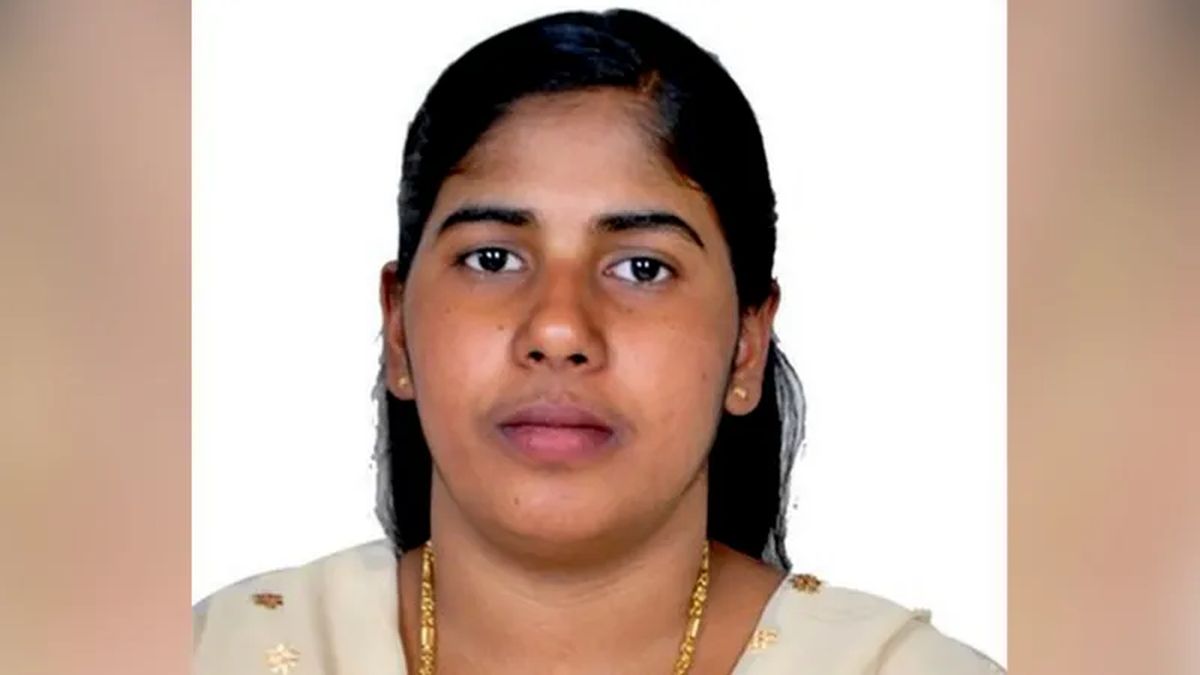With over 10,000 Indians currently imprisoned in foreign jails, including 49 facing the death penalty, the harsh reality of overseas legal entanglements continues to challenge Indian diplomacy and test the limits of government intervention. From allegations of petty crimes to serious offences including murder and drug trafficking, Indian nationals abroad face legal systems vastly different from India’s, often without adequate legal support or diplomatic recourse.
The case of Nimisha Priya: A stark example
Among the most urgent cases is that of Nimisha Priya, a nurse from Kerala sentenced to death in Yemen for the 2017 murder of her Yemeni business partner, Talal Abdo Mahdi. After reportedly drugging Mahdi to retrieve her passport, which he had seized, the situation escalated fatally. Priya, along with a Yemeni accomplice, allegedly dismembered the body and hid it in a water tank, the PTI reported. Convicted in a trial conducted under Yemen’s Sharia law amid a brutal civil war, her appeal was rejected in 2023, and execution is scheduled for July 16, 2025.
The Indian government has admitted its hands are tied due to the lack of diplomatic relations with the Houthi-controlled Yemeni administration. Despite efforts including informal negotiations and engaging influential locals, the situation remains grim. The only remaining hope lies in “blood money”, a provision under Sharia law that allows the convict’s life to be spared if the victim’s family accepts financial compensation. However, this process is strictly private, and the Indian state cannot directly intervene beyond facilitating contact.
A pattern beyond a single case
Priya’s case, while extreme, is not isolated. As of March 2025, the Ministry of External Affairs (MEA) said that 49 Indian nationals were facing death sentences in eight countries. This includes 25 in the UAE, 11 in Saudi Arabia, six in Malaysia and others in Kuwait, Indonesia, Qatar, the US and Yemen.
The reasons range from murder, drug trafficking and espionage to economic crimes, and in some cases, even religious violations in highly conservative legal jurisdictions. For example, several Indians executed in Saudi Arabia and Kuwait in recent years were convicted of drug-related offences, the MEA informed the Rajya Sabha in March this year.
A legal limbo
Indian diplomatic missions abroad consistently walk a fine line. While they are mandated to provide legal and consular support, including jail visits, arranging interpreters and helping with appeals or mercy petitions, the host country’s sovereignty always takes precedence. In cases like Yemen, where the central authority is fragmented and India lacks formal recognition of the de facto rulers — the Houthis — in this case where even these basic interventions become near-impossible.
Moreover, many Indian nationals often lack legal awareness, face language barriers and are unable to afford effective representation. In conflict zones or authoritarian regimes, fair trials and due process are not always guaranteed.
It’s disproportionate in the Gulf
The United Arab Emirates and Saudi Arabia, which host large Indian migrant populations, particularly blue-collar workers, see a disproportionately high number of legal cases involving Indians. The UAE alone has over 2,500 Indian prisoners, with 25 on death row, the highest among all foreign nations, the MEA said. While the UAE government does not publicly release execution data, Indian authorities rely on informal channels to track developments.
Often, these legal issues arise from labour disputes, identity theft, smuggling or violent altercations under stressful working conditions. In some cases, convictions have stemmed from being at the wrong place at the wrong time or falling into the trap of illegal networks.
Execution: Malaysia to Saudi Arabia
Between 2023 and 2024, multiple Indians were executed in Saudi Arabia, Kuwait and Malaysia, with at least three executions reported in each of the first two nations in 2024 alone. In 2023, five Indians were executed in both Kuwait and Saudi Arabia, highlighting how quickly legal decisions can escalate to capital punishment in these jurisdictions.
While India has a strong record of advocating for its citizens abroad, it has no leverage to overturn criminal verdicts in sovereign countries. The government can support legal appeals, coordinate with NGOs and facilitate mercy petitions, but the final decision lies with the host country’s judiciary or head of state.
Impact Shorts
More ShortsAccountability of vulnerabile?
These troubling cases underline the precarious situation of Indian nationals abroad, especially migrant workers and low-income expatriates who often lack access to legal resources. Although the government asserts that the “safety, security, and well-being” of Indians overseas remains a top priority, the sheer scale of cases — over 10,000 prisoners globally — makes individual intervention a monumental task.
In addition to formal diplomatic mechanisms, community-led initiatives, such as the Save Nimisha Priya – International Action Council, have played a crucial role in raising awareness and facilitating on-ground negotiations. These groups help circumvent bureaucratic delays and create direct lines of communication with families, local authorities and even informal power holders like tribal sheikhs in Yemen.
The way forward
To reduce such instances, there is a growing call for stronger pre-departure awareness programmes for Indian migrants, particularly those going to countries with strict legal systems. Educational campaigns about local laws, cultural norms and legal rights could serve as a first line of defence.
Furthermore, there is a need for bilateral legal aid treaties, expedited consular access, and designated legal defence funds to ensure that Indian nationals are not left to fend for themselves. India’s expansive diplomatic presence provides the necessary infrastructure to lead such reforms, but political will and sustained funding are crucial.
The plight of Indians like Nimisha Priya reflects the dark underbelly of global migration, where dreams of better lives sometimes end in legal nightmares. While the Indian government continues to assist and intervene where possible, the reality remains that sovereign law takes precedence abroad. As more Indians seek opportunities overseas, equipping them with knowledge, legal support, and institutional backing is not just a diplomatic responsibility, it is a humanitarian imperative.


)

)
)
)
)
)
)
)
)



